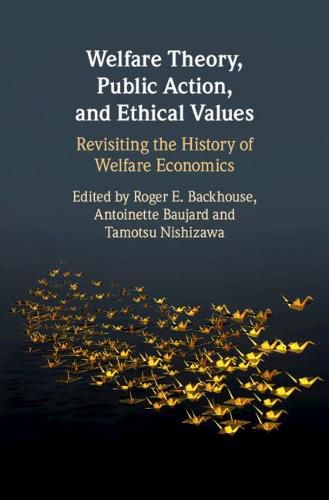Readings Newsletter
Become a Readings Member to make your shopping experience even easier.
Sign in or sign up for free!
You’re not far away from qualifying for FREE standard shipping within Australia
You’ve qualified for FREE standard shipping within Australia
The cart is loading…






This innovative history of welfare economics challenges the view that welfare economics can be discussed without taking ethical values into account. Whatever their theoretical commitments, when economists have considered practical problems relating to public policy, they have adopted a wider range of ethical values, whether equality, justice, freedom, or democracy. Even canonical authors in the history of welfare economics are shown to have adopted ethical positions different from those with which they are commonly associated. Welfare Theory, Public Action, and Ethical Values explores the reasons and implications of this, drawing on concepts of welfarism and non-welfarism developed in modern welfare economics. The authors exemplify how economic theory, public affairs and political philosophy interact, challenging the status quo in order to push economists and historians to reconsider the nature and meaning of welfare economics.
$9.00 standard shipping within Australia
FREE standard shipping within Australia for orders over $100.00
Express & International shipping calculated at checkout
This innovative history of welfare economics challenges the view that welfare economics can be discussed without taking ethical values into account. Whatever their theoretical commitments, when economists have considered practical problems relating to public policy, they have adopted a wider range of ethical values, whether equality, justice, freedom, or democracy. Even canonical authors in the history of welfare economics are shown to have adopted ethical positions different from those with which they are commonly associated. Welfare Theory, Public Action, and Ethical Values explores the reasons and implications of this, drawing on concepts of welfarism and non-welfarism developed in modern welfare economics. The authors exemplify how economic theory, public affairs and political philosophy interact, challenging the status quo in order to push economists and historians to reconsider the nature and meaning of welfare economics.